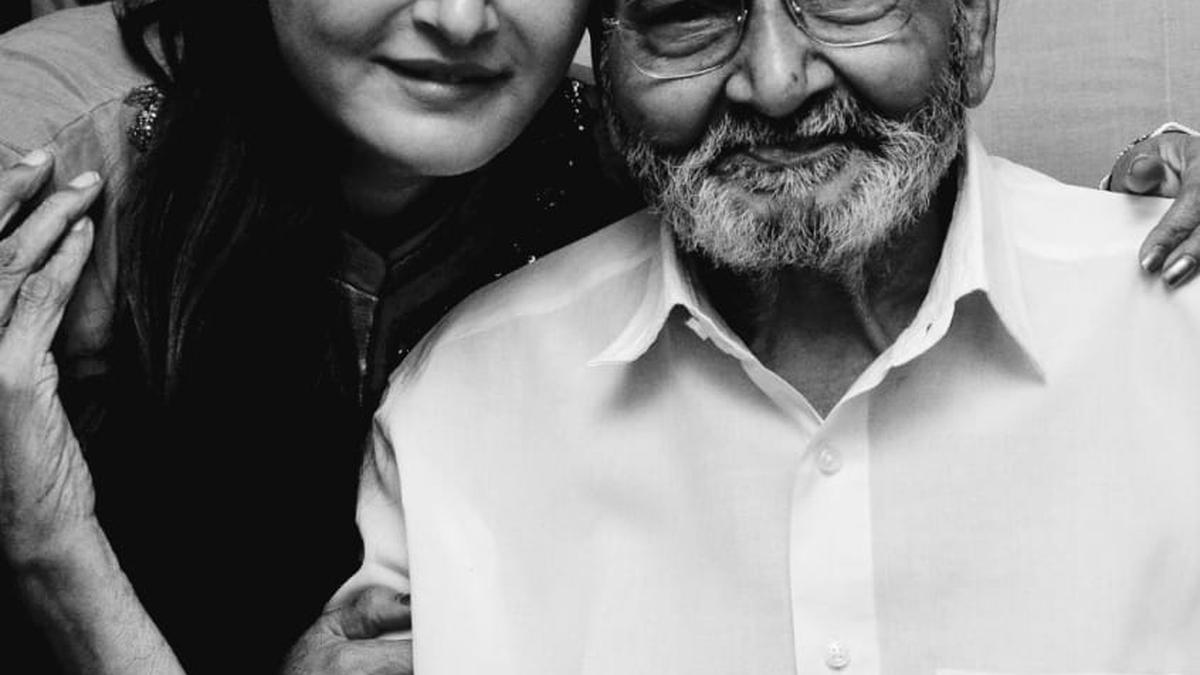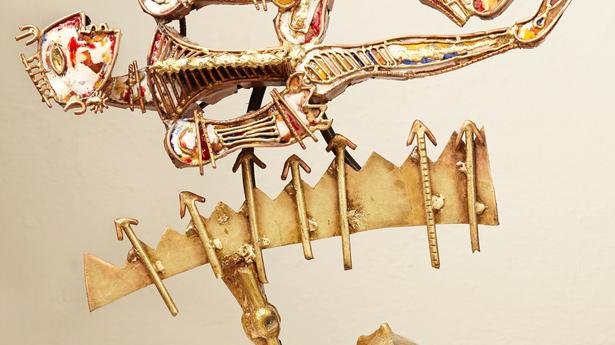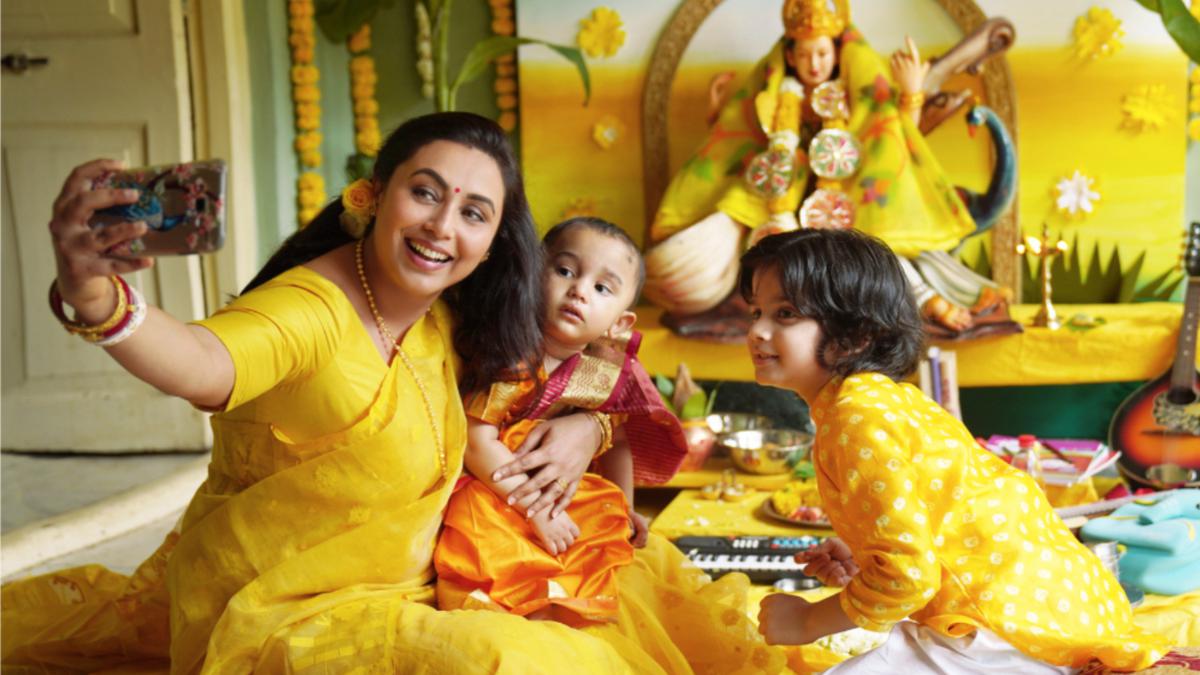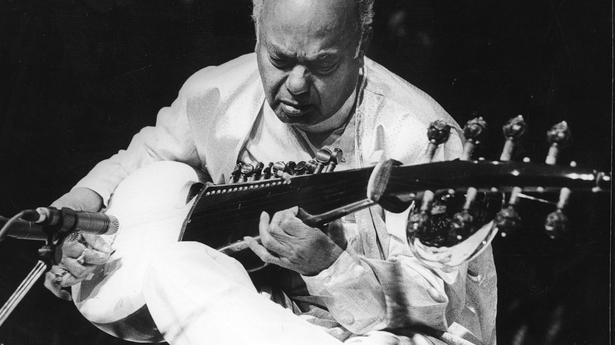Jayaprada with K Viswanath
| Photo Credit: SPECIAL ARRANGEMENT
‘It seems like I am sitting on a tree and its branches are falling off one by one. . First S.P. Balasubramanyam went. Then Krishna ji (popular Telugu actor). Now, Vani Jairam ji and K Viswanath ji. I feel lonely and orphaned. The only saving grace in Viswanath ji’s case is he went without suffering. He lived a rich, healthy and long life. I feel his shadow is still there,’ says Jayaprada, intermittently sobbing during the course of this conversation, almost 24 hours after the doyen of Telugu and Hindi cinema had breathed his last, aged 93.
“We used to call him Kalatapasvi. He was a father figure for me, my guru, my mentor. Whatever Jayaprada is today, is due to his guidance, his blessings,” she says, recalling how she was a teenager in school when she was picked by Viswanath to play the deaf and mute leading lady in the Telugu film Siri Siri Muva (1976), co-starring Chandramohan. The film got a couple of National Awards. Three years later, Viswanath remade it in Hindi as Sargam, retaining Jayaprada as the heroine and opting for Rishi Kapoor as the hero with the dafli in his hands. The role of a speech-impaired girl suited Jayaprada to perfection as she did not know Hindi at that time.
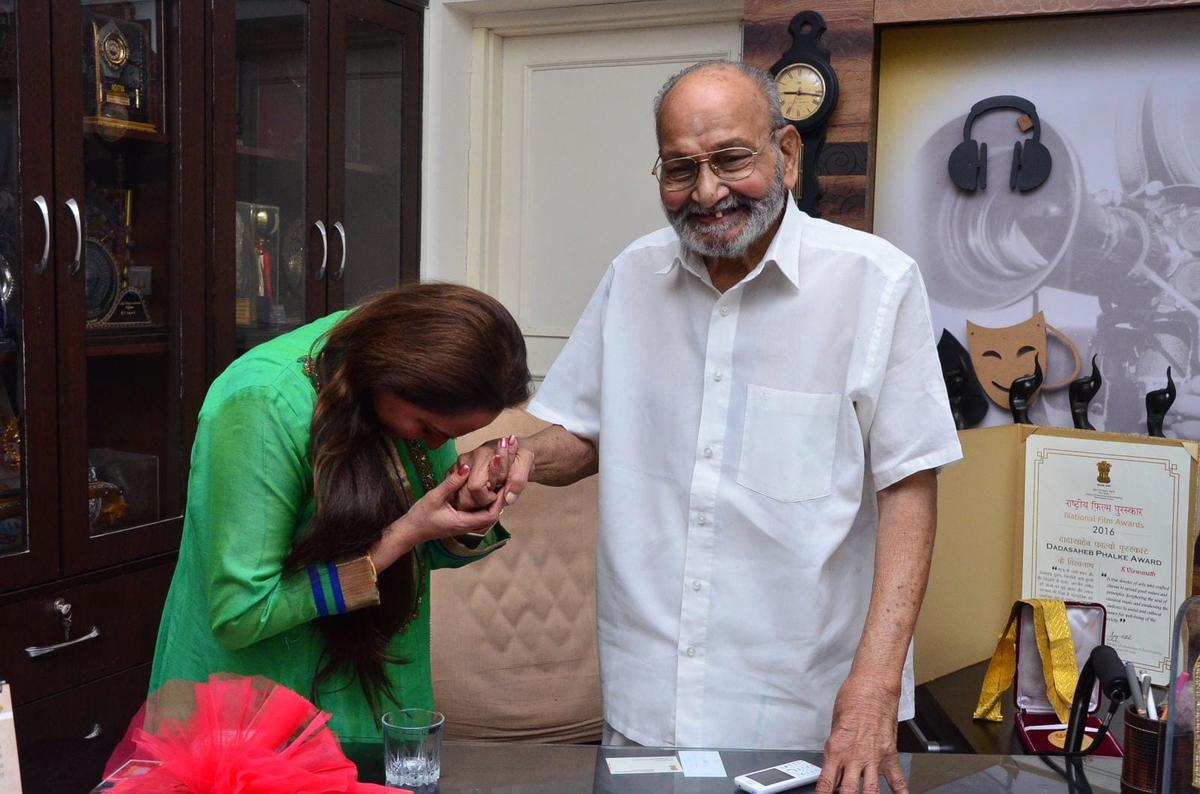
Jayaprada with K Viswanath
| Photo Credit:
SPECIAL ARRANGEMENT
“Viswanath ji was a perfectionist. He used to be calm on the sets even when he had to pack up and some scenes still remained to be canned. To enable me to get the right expressions for the role, he sent me to a deaf and dumb school. I spent time with the students, observing their body language and how they use their hands and facial expressions and struck a rapport with them. When the film was announced, some people wondered why Viswanath ji had taken me for the role. I was a newcomer opposite Rishi Kapoor who was already a popular hero. Viswanath ji taught me how to be friends with the camera. I remember, before the shooting of the song ‘Dafliwale’, I used to keep the gunghroos on the dafli and imagine them to be my friend. When the camera rolled, I imagined a lover there. Dilip Kumar saw the film and predicted to Viswanath ji that this girl will be a big star one day.”
Now a veteran of over 300 films in multiple Indian languages, including Telugu, Tamil, Malayalam, Kannada, Hindi, Marathi and Bengali, Jayaprada who has just signed to play a Sarojini Naidu biopic, gives all credit to Viswanath. “Though Hindi film audiences would identify only Sargam, my journey with him also goes back to Sanjog, Sur Sangam, Kaamchor (Jeevana Jyothi, Sankarabharanam and Subhodayam respectively in Telugu ) and also the Telugu film Sagara Sangamam . He gave me the confidence to approach each role differently and be bold enough to undertake any role. My role of an old woman in Sanjog, was a risk because I was at the peak of my career and there was great limitation then on what a heroine could or could not do. I took up the challenge as the film offered me a double role, of both an older and a younger woman. I remember how he used to explain each scene, how he would slump his shoulders to enact the shot of an older woman. It helped me essay the role well.”
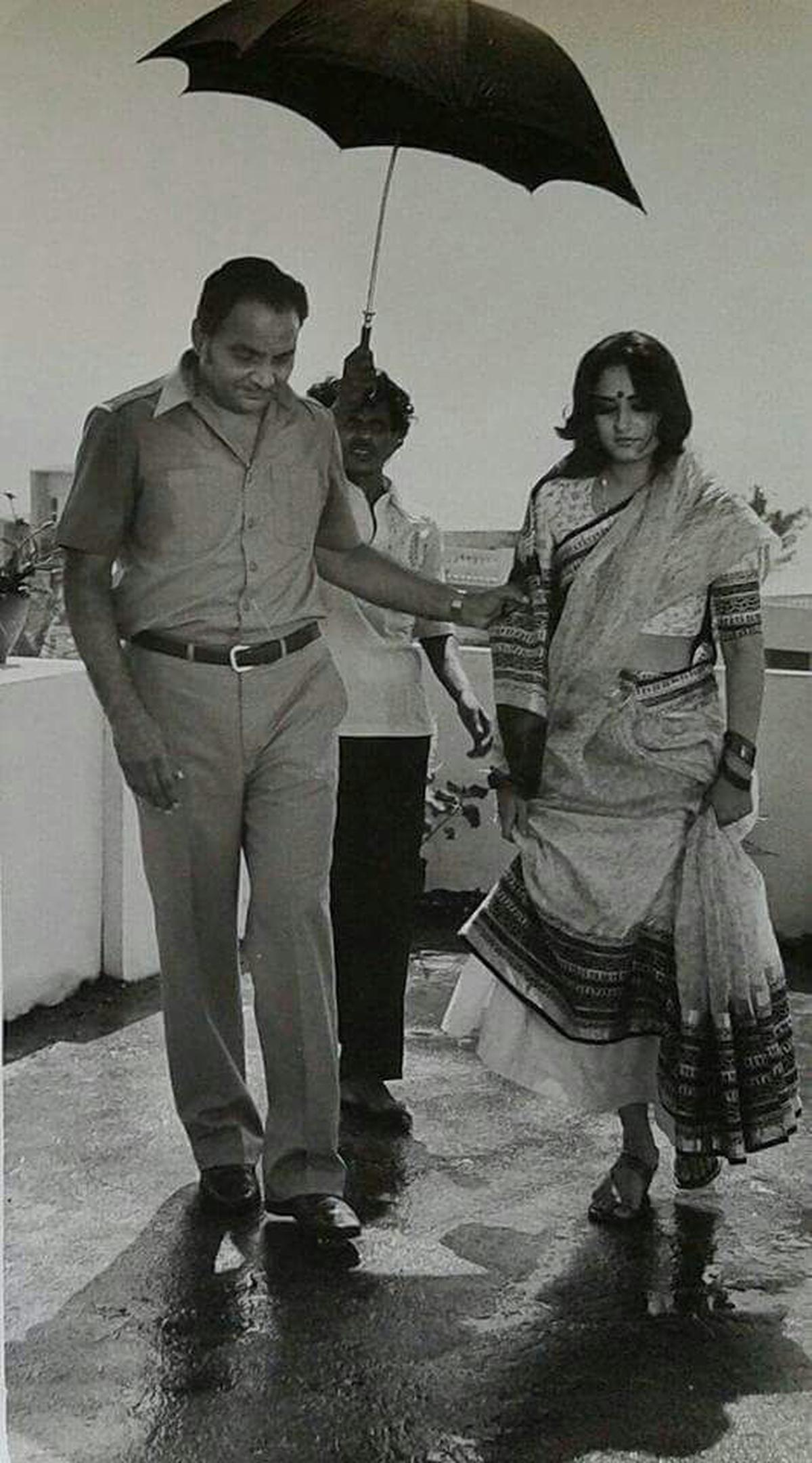
Jayaprada with K Viswanath
| Photo Credit:
SPECIAL ARRANGEMENT
As for Sur Sangam which starred Girish Karnad in the lead role, she says, “It was a dream project for me. I was very keen to do the Telugu film Sankarabharnam as well, but Viswanath ji opted for Manju Bhargavi instead. Here, my early training in classical dance came in handy. Viswanath ji made no compromises on the content of the film. It was a sensitive film directed by a sensitive man. I had few dialogues in the film but plenty of scenes where I had to emote with my eyes. Viswanath ji believed in the power of silence and did not try to fill each frame with words. Viewers would remember how he used the sound of birds or water in the film. He was a lover of nature, and of Indian traditions.”
Viswanath’s films were steeped in the Indian value system, the strength of the family system, and the hold of religion. “For years, his films talked of Hindu middle-class families. Yet, every Indian could identify with them. Like Sanjog or Sur Sangam; one was about a mother’s love for a child and the other about the power of Indian classical music. He could relate unique stories in a universal context. I feel fortunate to have had him as my guru, work under his direction, and even learn life lessons from him. I feel blessed but somehow wish he could return , and put his hand on my head again.”
The Dadasaheb Phalke award winner may not be around to bless the seasoned actor, but his films will continue to be a milestone for generations to come.


